10 Excel Tips and Tricks for 2019
In this article, I’ll be covering 10 Excel
tips that you can use to boost productivity and make your work life easier.
Make sure you read through the entire list so that you can find the tips that
will be most useful to you.
I’ll be jumping straight into the action
below. Make sure you bookmark this page so that you can come back here in case
you forget any of the useful tips I’ll be sharing.
Table of Contents
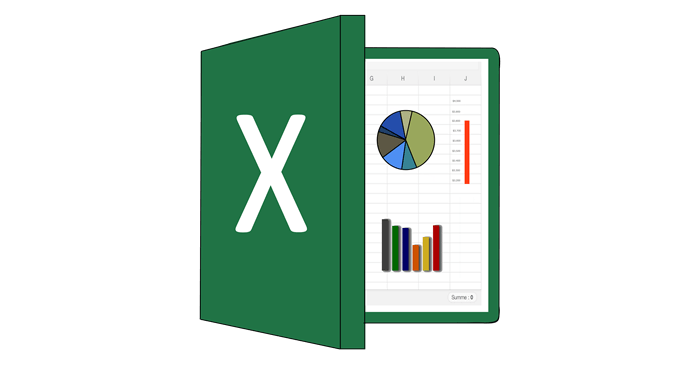
Mục Lục
Make Use of the Status Bar
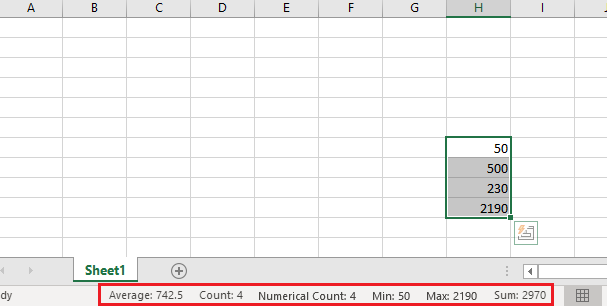
Whenever you highlight a range of numbers, the
status bar at the bottom of Excel will feed you some useful information. You
can find information about the sum, the average, and the total count of
numbers.
Many people know about the status bar, but did
you know that you can right click it to add more features? For example, you can
add the minimum and maximum values in a range.
Use Shortcuts for Quick Navigation

If you need to navigate through a sheet
quickly, you can use the following keyboard shortcuts.
- Ctrl+End – navigate to the
furthest right cell you’ve entered data in. - Ctrl+home – navigate to the start.
- Ctrl+right arrow – navigate to the
furthest right of the Excel sheet. - Ctrl+left arrow – navigate to the
furthest left of the Excel sheet. - Ctrl+up arrow – navigate to the
top of the Excel sheet. - Ctrl+down arrow – navigate to the
bottom of the Excel sheet.
Sticky Rows
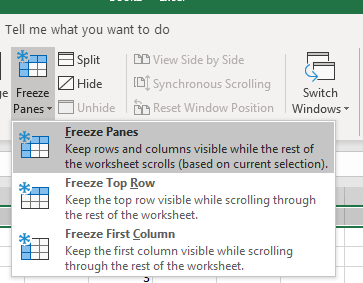
If you’d like some rows to stay at the top of the Excel sheet as you scroll through it, select the row by clicking on its letter on the left side, then click View at the top. Next, click Freeze Panes to be given the following options:
- Freeze Panes – Sticky all, based
on current view. - Freeze Top Row – Sticky only the
top row. - Freeze First Column – Stick only
the first column.
Quick Select Formulas
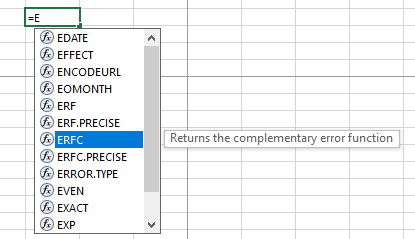
This tip can save a lot of time if you are
constantly entering formulas. As you begin to type a formula, you can use the
up/down arrow keys to go through suggested formulas and the tab key to
automatically select that formula. This method is often much faster than typing
out a formula in full each time.
Auto Fill Information
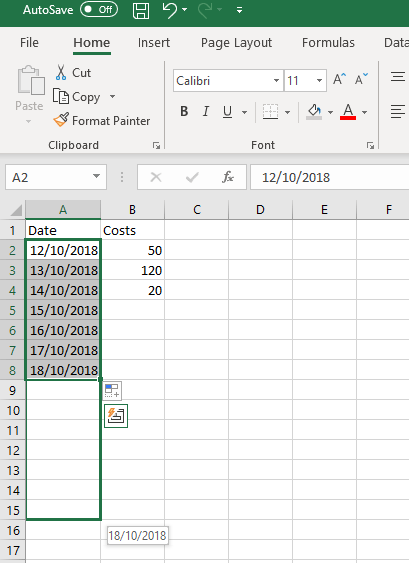
If you are filling out a range of data, you
can highlight that range, then drag downward to autofill more cells with the
following information. There are many ways you can use this to be more
productive. For example, it can be used to automatically enter consecutive
dates.
Excel is smart at guessing what information
you’d like to auto fill. For example, if you have a column that shows every
third day, it can follow that pattern with the auto fill feature.
Create a Macro to Automate a Task
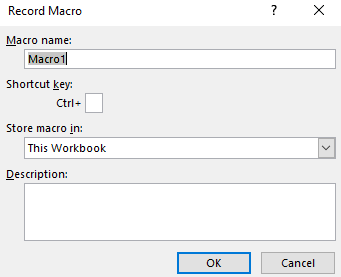
If there are any tasks you repeatedly perform
in Excel, you can create a macro to automate the process. To do this, follow
the steps below.
- Click File.
- Click Options.
- Click Customize Ribbon.
- Under the Main tab, select to activate the Developer box.
- Click OK.
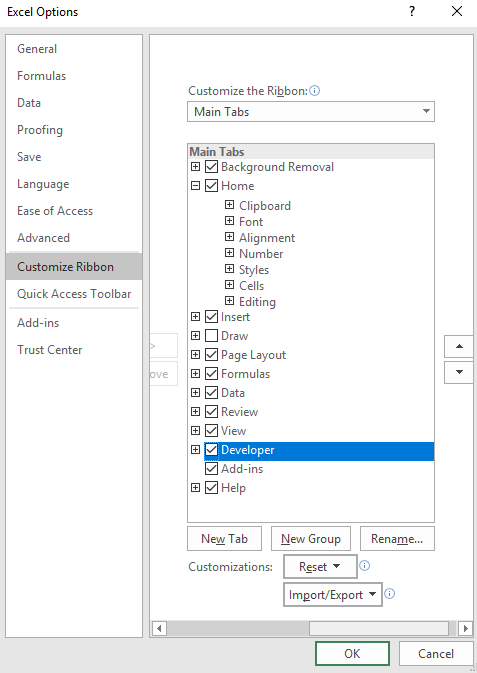
- Now, click the new Developer tab at the top of the Excel ribbon.
- After that, click the Record Macro button.
- Now, name the macro and choose a shortcut for it.
- You can also add a description to make things easier for you in the future.

- Next, simply perform any task just like you’d normally do on Excel.
- Once you’ve done, click Stop Recording.
- You can now use the shortcut you’ve created to instantly perform the task you recorded.
Create a Beautiful Table in Seconds
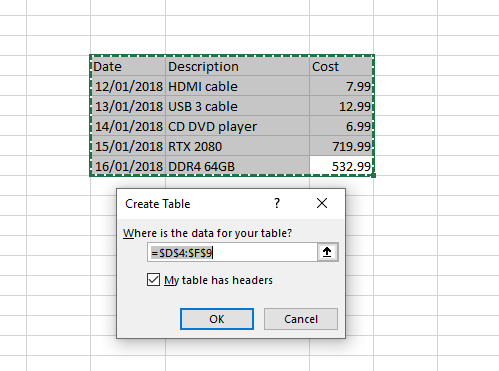
You can create visually appealing tables in
seconds by following the steps below.
- First, highlight the data you’d like in the table.
- Go to the Insert tab.
- Click Table.
- The highlighted area will now have a border around it.
- Click OK to create the table.

You can use the table icons at the top right
to change the colors, and use the checkboxes under the design tab to change up
the layout.
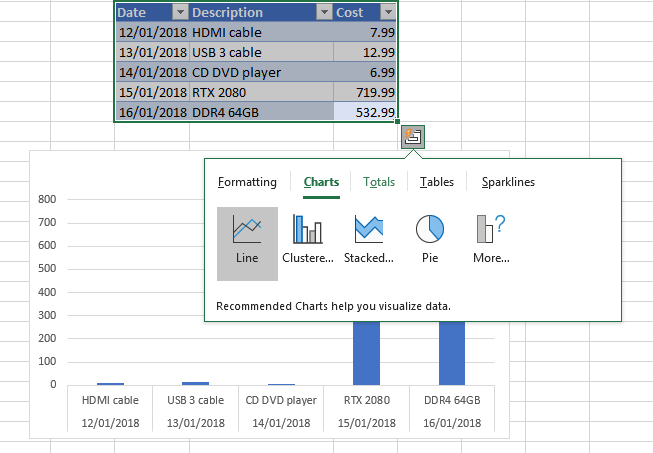
You can also click the small icon underneath
the table once your cursor is hovering over the table. This will open a small
menu for creating charts, tables, formatting rules, and more.
Use Go To to Find Specific Cells
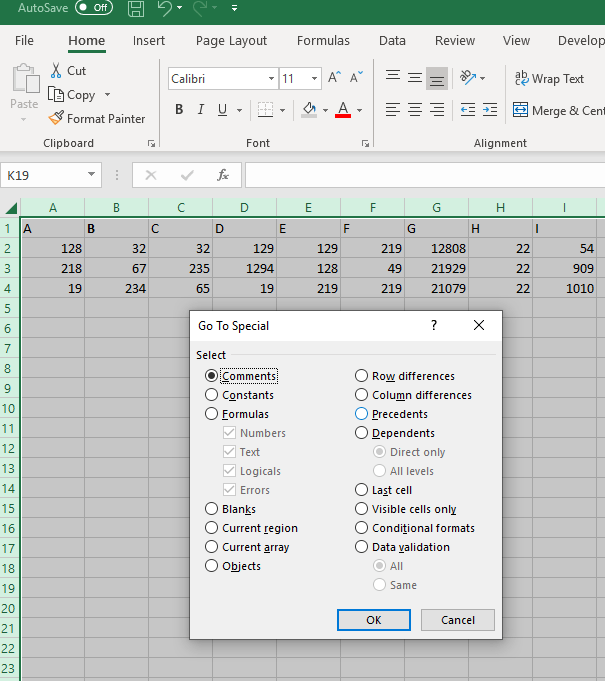
If your Excel sheet has an overwhelming amount of data, it becomes difficult to track everything down. You can use the Go To tool to find specific cells easier. It works similarly to the Find tool in Microsoft Word.
- First, select the range of data you’d like to find information in.
- Alternatively, just press Ctrl+A to select everything.
- Look for the Edit section on the Home tab at the top right.
- Click Go To.
- You can then enter a value, word, or use the ‘special’ tab to find more specific elements.
Quick tip: You can create a comment on any cells you’d like to find easily later on and then use the Comment selection in the Special tab when using Go To.
Change How ‘Enter’ Works
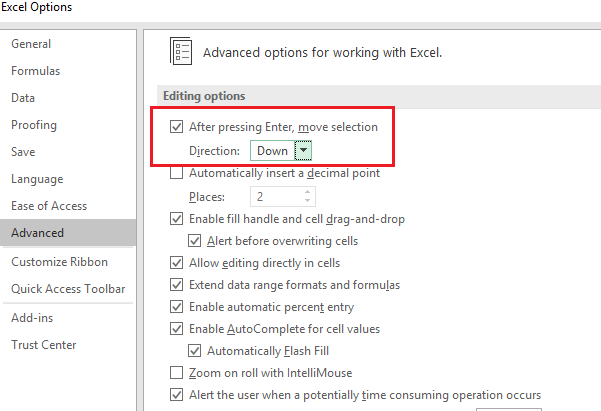
By default, pressing Enter will move you a cell down, but there is a method to change how Enter works in Excel. To change this, go to File, then Options, then click on the Advanced tab.
From here, you can choose whether the Enter
key will move you up, down, right, or left. Alternatively, you can just turn
off the functionality completely. This is useful if you’d like to keep enter as
a simple way to confirm data and would prefer to navigate cells manually.
Copy the Same Data into Multiple Cells at Once
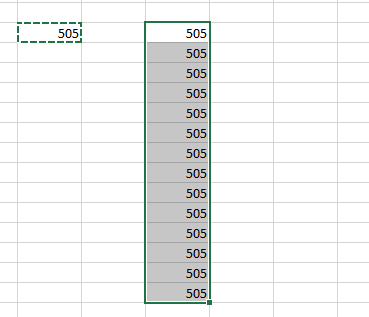
You can quickly copy the data of one cell into as many cells as you’d like. To do this, first press Ctrl+C on the cell you’d like to copy. Next, highlight the cells you’d like to copy to, then press Ctrl+V.
Summary
Did these Excel tips prove to be useful? I hope so. If you have any questions about the tips I’ve included in this article, please connect with me on Twitter and I’ll get back to you as soon as I can. Enjoy!















![Toni Kroos là ai? [ sự thật về tiểu sử đầy đủ Toni Kroos ]](https://evbn.org/wp-content/uploads/New-Project-6635-1671934592.jpg)


